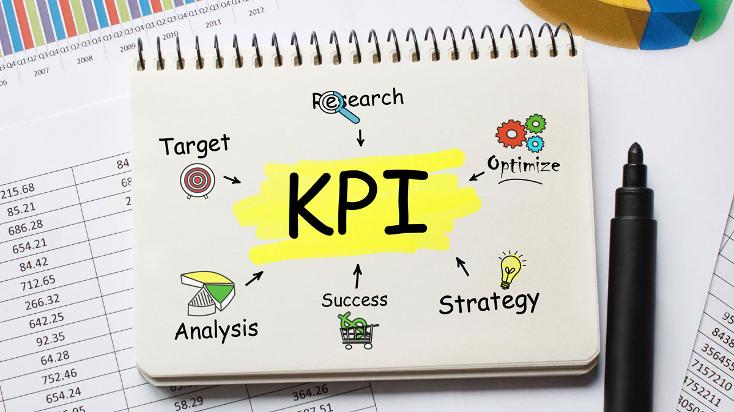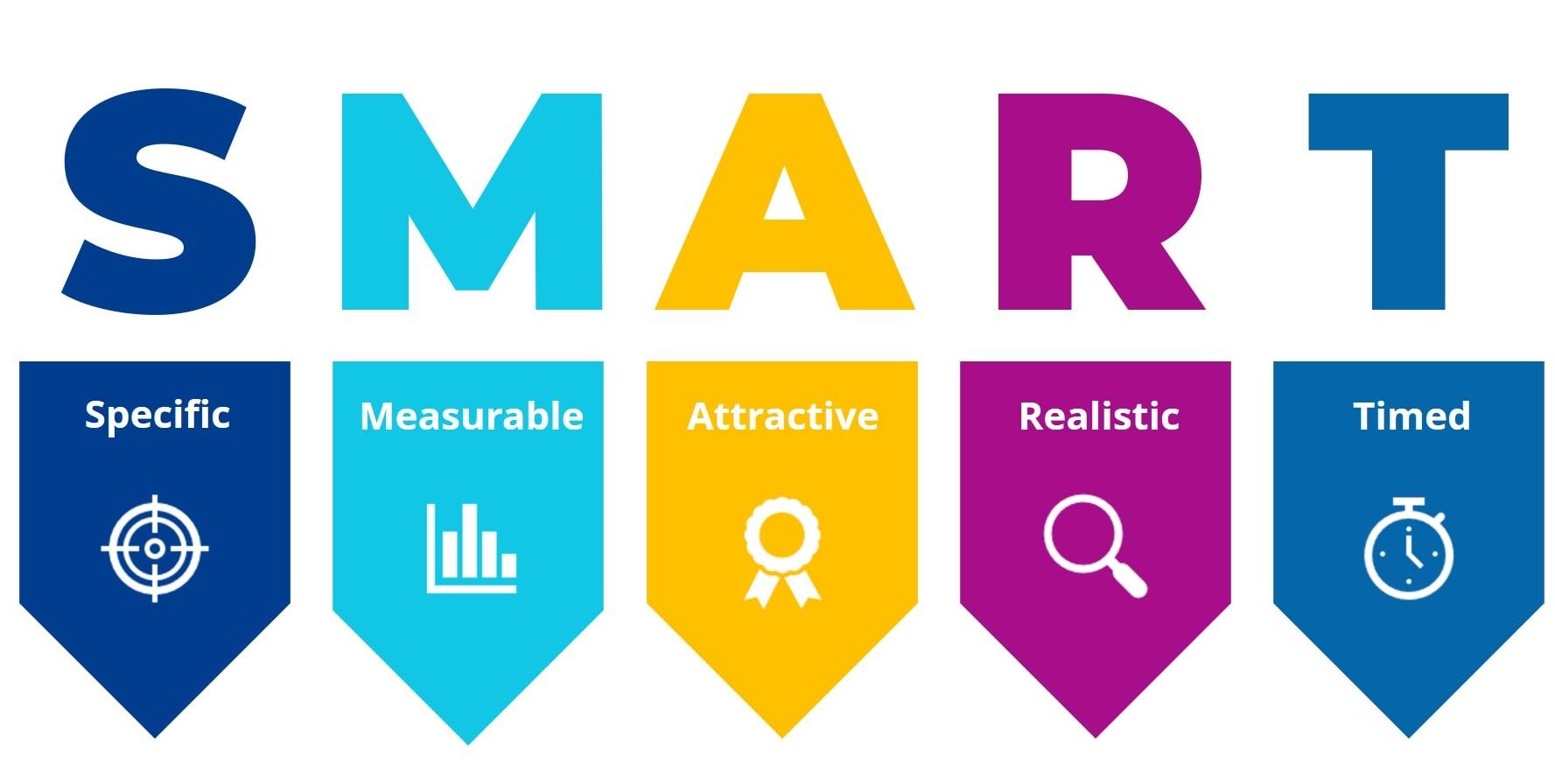In the realm of business intelligence, understanding how to define KPIs is crucial for effective decision-making. Business intelligence KPIs and metrics play a pivotal role in this process, serving as the compass that guides your organization towards its goals. As we explore the journey of defining KPIs, we'll also address queries such as "where do you create KPIs in the data model" and "how to determine KPIs" to provide a comprehensive understanding.
For business analysts, mastering key performance indicators is a career-defining skill. This guide will not only define KPI in business but also shed light on analytics KPIs and how to create KPIs for data analysts. By delving into the definition of KPI in retail and exploring the nuances of BI metrics, we'll equip you with the knowledge needed to excel in your role.
Unlocking Success: The Art of Defining Key Performance Indicators (KPIs)
Embark on a journey towards business intelligence success by mastering the art of defining Key Performance Indicators (KPIs). In this insightful exploration, we unveil the essential principles that elevate KPIs beyond simple metrics, transforming them into potent tools that drive informed decision-making.
Understanding the nuances of defining KPIs is akin to unlocking the gateway to business triumph. These pivotal metrics serve as compass points, guiding organizations through the intricacies of data-driven decision-making. Let's delve into the core principles that make this transformation possible.
Decoding the Art of Defining KPIs
At the heart of every successful business intelligence strategy lies the skillful definition of KPIs. It's not just about selecting metrics; it's about crafting a narrative that aligns seamlessly with your organizational goals. We demystify the process, breaking down the art of defining KPIs into actionable steps.
Precision in Purpose
Successful KPIs are not arbitrary; they are purposefully chosen to reflect the essence of your business objectives. Learn how to identify the key drivers of success and translate them into measurable KPIs that become the backbone of your decision-making process.
Strategic Alignment with Business Goals
The true artistry in defining KPIs lies in their strategic alignment with overarching business goals. We guide you through the process of harmonizing your KPIs with your organizational vision, ensuring that each metric contributes meaningfully to the success of your enterprise.
Unleashing the Power of Data Insights
KPIs, when defined with precision, become powerful tools for extracting meaningful insights from your data. Explore the techniques that turn raw data into actionable intelligence, providing a solid foundation for strategic decision-making.
Future-Proofing with Adaptive KPIs
In a dynamic business environment, the ability to adapt is paramount. Discover how defining flexible and adaptive KPIs allows your organization to navigate changes with resilience, ensuring that your metrics evolve in tandem with your business landscape.
As you immerse yourself in the art of defining KPIs, you're not just creating metrics – you're crafting a roadmap for success. These insights will empower you to transform your data into a strategic asset, guiding your organization towards unparalleled heights.
Unlock the full potential of your business intelligence endeavors by mastering the art of defining KPIs. This comprehensive guide serves as your key to translating data into actionable insights, fostering a culture of informed decision-making that propels your organization towards enduring success.
Diagnosing Pain Points and Identifying Core Business Goals
Embarking on a successful business intelligence journey requires a deep understanding of your organization's pain points and a strategic alignment with core business goals. In this guide, we explore the vital process of diagnosing challenges and identifying key objectives, teaching you to pinpoint metrics crucial for aligning Key Performance Indicators (KPIs) with your business strategy.
Every successful venture begins with a thorough diagnosis of pain points. We'll guide you in identifying obstacles, from data bottlenecks to inefficiencies, and provide strategies to address these challenges head-on.
Define meaningful KPIs by understanding your organization's core business goals. Learn the methodology to align metrics with overarching objectives, creating a symbiotic relationship between KPIs and strategic business aspirations.
Crafting effective KPIs demands a nuanced understanding of your business strategy. Gain insights into aligning KPIs strategically, ensuring each metric directly reflects your organization's goals, from revenue growth to customer satisfaction.
Diagnosing pain points goes beyond identifying challenges; it's about turning them into opportunities. Discover how data-driven insights can enhance decision-making, optimize processes, and drive your business towards unprecedented success.
As you navigate the intricate landscape of diagnosing pain points and aligning with core business goals, you're not just refining your strategy – you're laying the groundwork for a robust business intelligence framework. This guide equips you with the knowledge to transform challenges into triumphs, ensuring your KPIs propel your organization towards sustained success.
Streamlining Focus - Breaking Down to a Select Few KPIs
In the dynamic world of business intelligence, precision is paramount for success. This segment guides you through the strategic process of streamlining your focus by distilling a multitude of metrics into a select few Key Performance Indicators (KPIs). Explore the transformative power of precision and learn how it can significantly amplify the impact of your business intelligence efforts.
Precision in Focus: Streamlining Your KPIs
Navigate the sea of data with precision by distilling a diverse array of metrics into a concise set of KPIs. Learn how this strategic approach ensures that your attention is directed towards the metrics that truly matter for your business.
The Power of Selectivity: Amplifying Impact
Discover the strategic advantage of selectivity in KPIs. By honing in on a carefully chosen to set of metrics, amplify the impact of your business intelligence efforts. This focused approach enhances the clarity of insights and facilitates more informed decision-making.
Crafting a KPI Strategy: Where to Create KPIs in the Data Model
Understand the crucial aspect of where to create KPIs in the data model. Gain insights into crafting a KPI strategy that aligns seamlessly with your business objectives, strategically positioning your selected KPIs for optimal impact.
Maximizing Efficiency: Business KPIs that Drive Results
Explore the specific KPIs that truly drive results for your business. Learn to identify and implement business KPIs that align with organizational goals, ensuring efficiency in your business intelligence endeavors.
As you streamline your focus and distill a select set of KPIs, you're not just simplifying your data landscape – you're unleashing the precision necessary for impactful business intelligence. This guide equips you with the knowledge to strategically position your KPIs, driving your business towards informed decision-making and unparalleled success.
Understanding How to Set S.M.A.R.T. KPIs? That Amplify the Impact on the Business
The concept of Smart KPIs stands as a beacon of refined precision. Before delving into the nuances of Smart KPIs, let's revisit the fundamental role of KPIs in evaluating organizational success and measuring overall business performance. These indicators serve as crucial metrics aligned with short or long-term business goals, ensuring that organizations choose the most significant ones for accurate and reliable outcomes.
So, what sets Smart KPIs apart? Smart, as an acronym, encapsulates five essential traits that a KPI should embody:
Specific: Tailored to a particular goal or task, Smart KPIs bring a laser-focused approach to measurement.
Measurable: Easily quantifiable in numbers or percentages, Smart KPIs provide tangible metrics for evaluation.
Attainable: Grounded in achievability, Smart KPIs set realistic benchmarks for success.
Realistic: Stemming from a robust foundation, Smart KPIs reflect achievable and meaningful objectives.
Timely: Smart KPIs are equipped with a time frame, ensuring a sense of urgency and relevance.
By undergoing a meticulous process and answering a series of questions, Smart KPIs earn their distinction and find their place on your dashboard. Join us in unraveling the strategic significance of Specific, Measurable, Attainable, Realistic, and Timely traits in Smart KPIs, and discover how these refined metrics can elevate your business performance to new heights.
Data Precision: The Key to Accurate KPIs in Business Intelligence
In the pursuit of business intelligence excellence, precision in defining Key Performance Indicators (KPIs) takes center stage. This segment underscores the fundamental role of a comprehensive data assessment in achieving precision. It guides readers through the nuances of evaluating and selecting the right data points, ensuring that KPIs not only measure performance but also accurately reflect the essence of their business.
Precision unfolds as an actionable strategy in defining KPIs, moving beyond surface-level metrics to align with broader business goals. The guide explores the intricacies of data evaluation, emphasizing the importance of strategic data point selection to guarantee that KPIs serve as precise indicators of business performance. As readers navigate the journey of thoroughly assessing their data, the guide unveils a roadmap to precision in business intelligence, empowering them to leverage accurate KPIs for informed decision-making and a deeper understanding of overall business health.
Mastering Visual Impact: Transforming KPIs into Business Insights
Unlock the art of visual representation in business intelligence with a focus on Key Performance Indicators (KPIs). This segment delves into the realm of Visualization Mastery, emphasizing that the visual representation of KPIs transcends aesthetics. Readers are invited to explore techniques that go beyond surface-level beauty, transforming raw data into impactful visuals that tell a compelling story of business performance with clarity and precision.
Within this guide, discover the strategic techniques that elevate visual representation from mere design to a powerful tool for communication and analysis. The emphasis is on conveying the intricate narrative of business performance through visuals that not only capture attention but also provide a deeper understanding of KPIs. This exploration ensures that businesses can leverage visualization as a masterful means to interpret data, making informed decisions and communicating the essence of their performance story effectively.
Conclusion
Armed with a deep understanding of defining KPIs, you are now equipped to navigate the complex landscape of business intelligence. From defining metrics to visualization mastery, this guide serves as your comprehensive blueprint for achieving unparalleled success in the world of BI.
Read More About BI
Frequently Asked Questions (FAQs)
Key Performance Indicators (KPIs) serve as the compass guiding organizations towards their goals in the realm of business intelligence. They play a pivotal role in measuring and evaluating performance, providing essential insights for informed decision-making.
Determining the right KPIs involves a comprehensive exploration of your organizational goals. The guide addresses this by decoding the art of defining KPIs, emphasizing precision in purpose, strategic alignment with business goals, and unleashing the power of data insights.
Crafting a strategic KPI strategy involves understanding where to create KPIs in the data model. The guide provides insights into this aspect, ensuring that your selected KPIs are strategically positioned for optimal impact on your business objectives.
Data assessment is fundamental for achieving accurate KPIs in business intelligence. The guide on data precision guides readers through the nuances of evaluating and selecting the right data points to ensure KPIs accurately reflect business performance.
Visualization mastery goes beyond aesthetics, contributing to effective communication and analysis of KPIs. The guide explores techniques that transform raw data into impactful visuals, conveying the story of business performance with clarity and precision.

